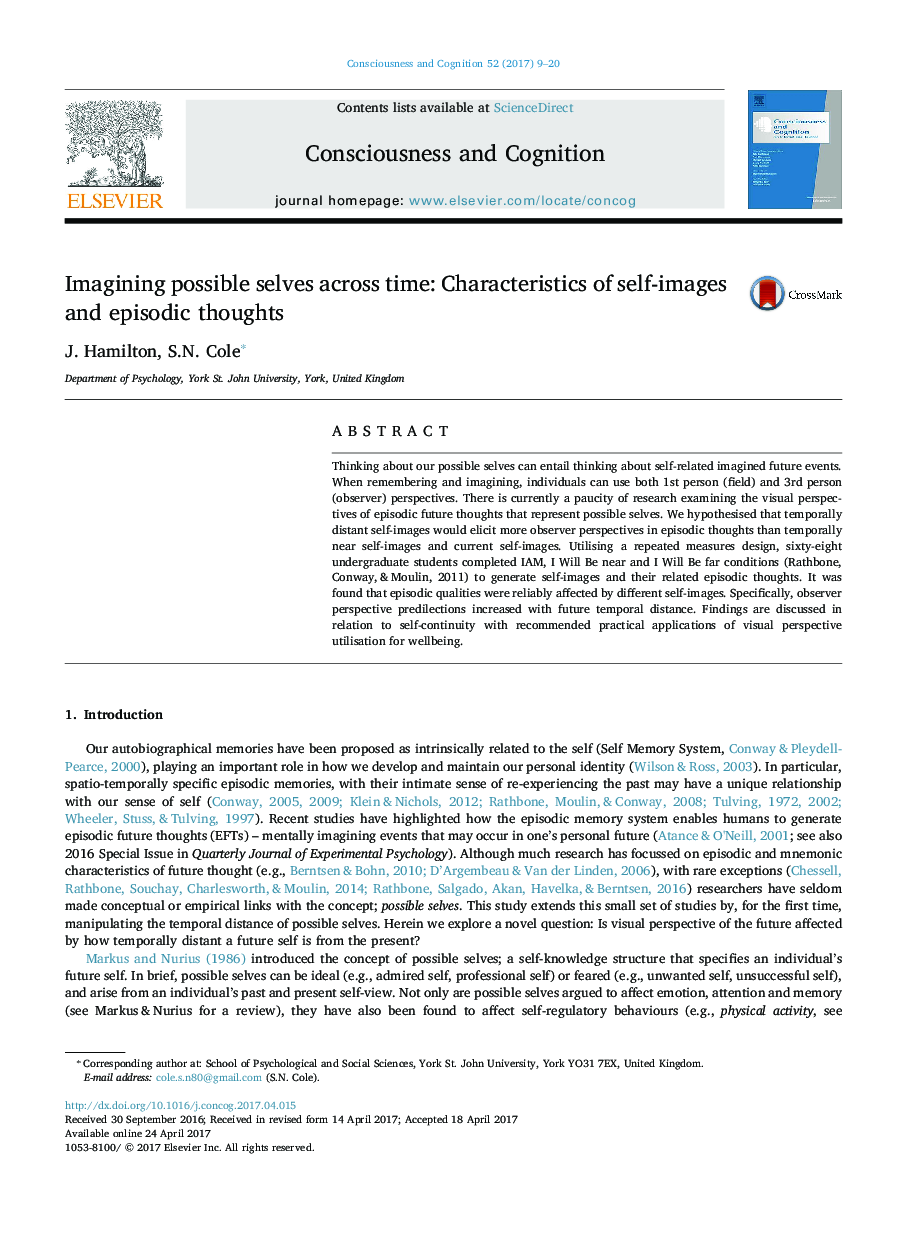| Article ID | Journal | Published Year | Pages | File Type |
|---|---|---|---|---|
| 5041762 | Consciousness and Cognition | 2017 | 12 Pages |
â¢People can reliably distinguish temporally near and distant selves.â¢Episodic Future Thinking qualities were reliably affected by future selves.â¢Observer perspectives are associated with distant future selves.â¢Distant future selves are more role (vs. attribute) based than near selves.
Thinking about our possible selves can entail thinking about self-related imagined future events. When remembering and imagining, individuals can use both 1st person (field) and 3rd person (observer) perspectives. There is currently a paucity of research examining the visual perspectives of episodic future thoughts that represent possible selves. We hypothesised that temporally distant self-images would elicit more observer perspectives in episodic thoughts than temporally near self-images and current self-images. Utilising a repeated measures design, sixty-eight undergraduate students completed IAM, I Will Be near and I Will Be far conditions (Rathbone, Conway, & Moulin, 2011) to generate self-images and their related episodic thoughts. It was found that episodic qualities were reliably affected by different self-images. Specifically, observer perspective predilections increased with future temporal distance. Findings are discussed in relation to self-continuity with recommended practical applications of visual perspective utilisation for wellbeing.
